Australian Warning System
The Australian Warning System (AWS) helps you stay safe and recognise emergency alerts.
It is a national system that provides information and warnings for hazards like:
- bushfires
- extreme heat
- floods
- cyclones
- storms.
The AWS delivers consistent messages so you know what to do when you see an alert.
It’s important that everyone knows and understands the new system.
If you run a business, it is important that you update your workplace cyclone plan accordingly.
AWS icons and warning levels
The AWS has a nationally consistent set of recognisable icons for each hazard and 3 levels of warning:
- yellow - advice: stay up to date
- orange - watch and act: conditions are changing - start taking action
- red - emergency warning: act immediately.
| Hazard | Advice | Watch and act | Emergency warning |
|---|---|---|---|
Cyclone | 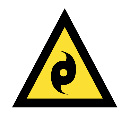 | 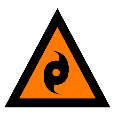
| 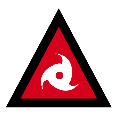
|
| Fire | 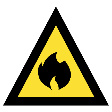
| 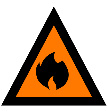
| 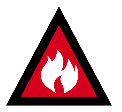
|
| Flood | 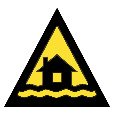
| 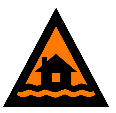
| 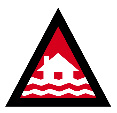
|
Storm | 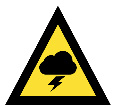
| 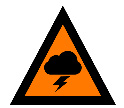
| 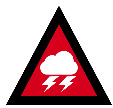
|
Extreme heat | 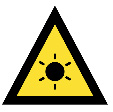
| 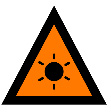
| 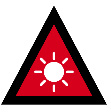
|
| Other | 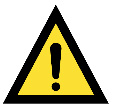 | 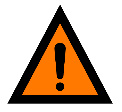 | 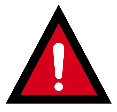 |
For more information about the AWS icons and warning levels, go to the AWS website.
Warning signal
The Standard Emergency Warning Signal is a siren that is used with the AWS at the emergency level when immediate action must be taken.
The siren may be played live or used on:
- radio
- TV
- social media.
Only the NT Emergency Service chief officer, the Bureau of Meteorology NT regional director, or their delegates can authorise the siren.
When you hear the siren, you should pay immediate attention. Listen to the announcement and follow any instructions given.
Voice or message alerts
Emergency Alert is the national telephone warning system used by emergency services to:
- send voice messages to land lines
- text messages to mobile phones.
It is used to notify those affected by potential emergencies.
In the NT, Emergency Alert is administered by NT Emergency Service.
For more information, go to the Emergency Alert website.
Fire danger ratings
The Australian Fire Danger Rating System (AFDRS) is used nationally.
Fire danger ratings describe the potential danger level of a bushfire. They provide the community with information to take action and protect themselves and others from fire hazards.
Fire danger ratings are used to communicate the consequences of a fire, if one was to start. On days when there is minimal risk, ‘no rating’ will be used.
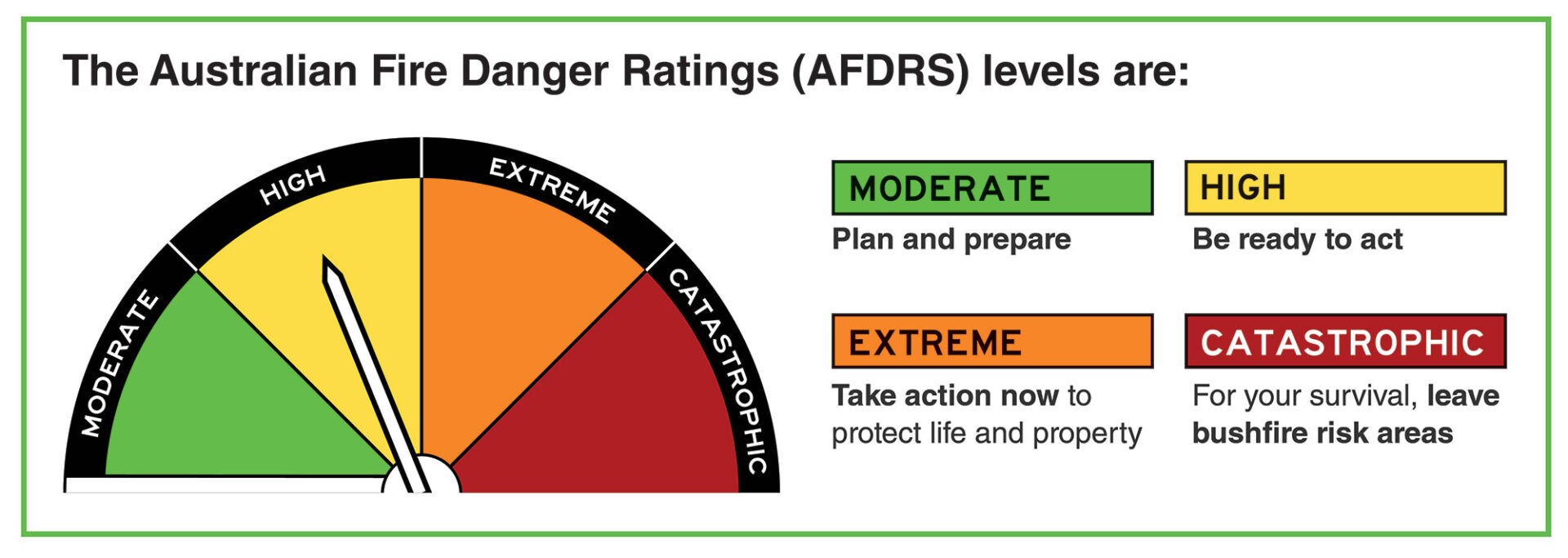
For more information, go to the Australian Fire Danger Rating System website.
Fire ban days
Fire bans are issued by the Bushfires NT Chief Fire Control Officer and NT Fire and Rescue Service Chief Fire Officer for specific areas when weather conditions indicate an increased fire risk.
Fire bans are generally issued for 24-hour periods and are communicated through local media and social media posts.
On fire ban days, no person shall light a fire or cause a fire to be lit in the open within the affected areas.
Read more about fire bans and fire danger periods.
Warnings outside the NT
Check the websites of each jurisdiction to find out how to stay informed during an emergency.
- Western Australia - go to Emergency WA
- Victoria - go to VicEmergency
- Tasmania - go to TasALERT
- New South Wales - go to Hazard Watch NSW
- Queensland - go to Get Ready Queensland
- South Australia - go to South Australia advice and warnings
- Australian Capital Territory - go to ACT Emergency Services Agency
- New Zealand - go to New Zealand National Emergency Management Agency.
More information
For more information about:
- current incidents and information about how to prepare for an emergency, go to SecureNT
- weather information and warnings, go to the Bureau of Meteorology.
Contact
For more information, email ntes@pfes.nt.gov.au.
Give feedback about this page.
Share this page:
URL copied!